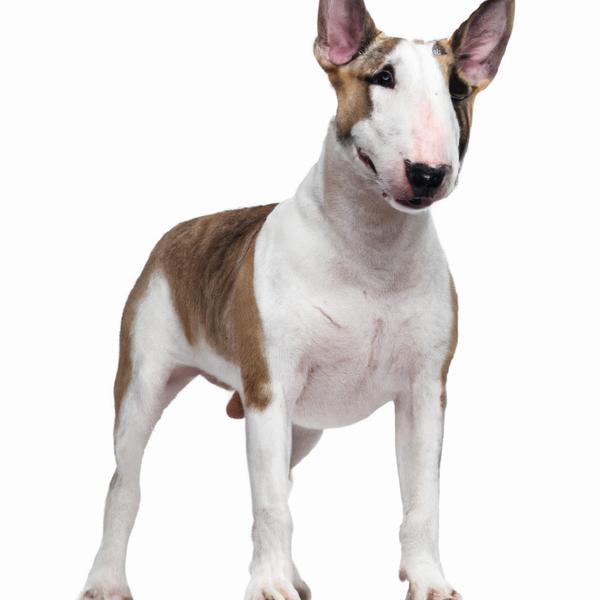Bull Terrier vs. King Charles Yorkie: Breed Differences and Similarities
Hypoallergenic
Are Bull Terriers or King Charles Yorkies hypoallergenic, or neither?
Unfortunately, neither Bull Terrier nor King Charles Yorkie are hypoallergenic, which may not make them the best choice for dog lovers who suffer from pet allergies.
Temperament
What are the personalities of Bull Terrier and King Charles Yorkie dogs?
Active
Protective
Trainable
Keen
Sweet
Tempered
Active
Playful
Independent
Energetic
Alert
Courageous
Intelligent
Friendly
Affectionate
Loyal
Gentle
Social
Fearless
Cheerful
Quiet
Nonaggressive
Polite
Graceful
Sporty
No tendency towards nervousness
Shedding Level
Do Bull Terriers shed more than King Charles Yorkies, or which breed sheds more, Bull Terriers or King Charles Yorkies?
Bull Terrier or King Charles Yorkie dogs are not heavy shedders, but they will lose a significant amount of hair each year. To decrease the amount of shedding, you can regularly brush your Bull Terrier or King Charles Yorkie. This will remove loose hair and keep their coat growing in the same direction.
Watchdog Ability
Which dog breed makes a better watchdog, the Bull Terrier or King Charles Yorkie?
Choose a Bull Terrier if you want a top-notch watchdog. This breed takes guarding seriously, and may not require much training, though obedience or guard dog training can improve their skills.
Avoid King Charles Yorkies as watchdogs - they're not effective.
Origin
What is the origin of Bull Terrier and King Charles Yorkie dog breeds?
England
United States
Ancestry
What are the origins of Bull Terrier and King Charles Yorkie breeds?
Bulldog, Old English Terrier
Cavalier King Charles Spaniel, Yorkshire Terrier
Breed recognition
Which kennel clubs recognize/register Bull Terrier and King Charles Yorkie?
American Canine Registry
American Kennel Club
America's Pet Registry
Canadian Kennel Club
Dog Registry of America Inc.
Federation Cynologique Internationale
Kennel Club of Great Britain
North American Purebred Registry, Inc.
American Canine Association, Inc.
Australian National Kennel Council
Continental Kennel Club
National Kennel Club
New Zealand Kennel Club
United Kennel Club
ACHC = American Canine Hybrid Club
DBR = Designer Breed Registry
DDKC = Designer Dogs Kennel Club
DRA = Dog Registry of America, Inc.
IDCR = International Designer Canine Registry®
Date of Birth
When were Bull Terrier and King Charles Yorkie breeds first developed?
1800s
2000s
Eye Color Possibilites
What are the eye colors of Bull Terrier and King Charles Yorkie dogs?
Brown
Brown
Nose Color Possibilites
What are the natural nose colors of Bull Terrier and King Charles Yorkie?
Black
Black
Coat Color Possibilites
What are the natural colors of the coat for Bull Terrier and King Charles Yorkie breeds?
Fawn
White
Pied
Brindle
Red
White
Red
Black
Brown
Blue
Coat Length
What is the typical coat length for Bull Terrier and King Charles Yorkie breeds?
Bull Terriers have short coats.
King Charles Yorkies are known for their coat length.
Coat Density
What is the density of the coat of Bull Terrier and King Charles Yorkie?
Coat Texture
What is the hair texture of Bull Terrier and King Charles Yorkie?
Straight
Litter Size
What is the usual litter size for Bull Terrier and King Charles Yorkie?
A Bull Terrier can have a litter of 10-12 puppies on average. However, it's worth noting that the size of the litters can vary greatly. Factors that can influence litter size include the health of the mother, breeding history, and genetics.
A King Charles Yorkie can have a litter of 4-6 puppies on average. However, it's worth noting that the size of the litters can vary greatly. Factors that can influence litter size include the health of the mother, breeding history, and genetics.
Adaptability
Bull Terriers are known for their adaptability and can adjust well to different environments and lifestyle changes.
King Charles Yorkies are highly adaptable and versatile, making them excellent companions for families and individuals of all lifestyles.
Health Issues
Between Bull Terrier and King Charles Yorkie, which breed is more prone to health problems?
The Bull Terrier breed is generally very healthy, requiring minimal vet visits. Still, it's important to keep an eye on their health and seek veterinary care when needed.
While the King Charles Yorkie breed is generally healthy, occasional vet check-ups are still necessary to address any health concerns.
Major Concerns
What are the major health concerns for Bull Terrier and King Charles Yorkie breeds?
Deafness (Whites)
Kidney Problems
Mitral Valve Disease
Lethal Acrodermatitis
Patellar Luxation
Retinal Dysplasia
Tracheal Collapse
Mitral Valve Disease
Portosystemic Shunt
Syringomyelia
Minor Concerns
What minor health issues should be kept in mind when owning Bull Terrier and King Charles Yorkie?
Entropion
Ectropion
Demodectic Mange
Eye Disease
Laryngeal Paralysis
Entropion
Progressive Retinal Atrophy
Cataracts
Retinal Dysplasia
Urolithiasis
Hip Dysplasia
Hydrocephalus
Patent Ductus Arteriosus
Color Dilution Alopecia
Microphthalmia
Shaker Dog Syndrome
Corneal Dystrophy
Keratoconjunctivitis Sicca
Hypoadrenocorticism
Legg-Calve Perthes Disease
Cryptorchidism
Occasional Tests
What occasional tests are recommended for Bull Terrier and King Charles Yorkie breeds?
Cardiac
Eye
Blood Test
Hearing (Whites)
Up:Uc Ratio For Kidney Function
Skin Scraping
Blood Test
Hip X-Rays
Heart
Dna For Pra
Eye Examinations
Full Physical Examination
Energy
How do the energy levels of Bull Terriers and King Charles Yorkies compare?
Bull Terriers' high energy levels make them unsuitable for a low-key dog, choose accordingly.
King Charles Yorkies are suitable for those with a balanced lifestyle as they have an average energy level.
Social Needs
Bull Terrier vs King Charles Yorkie social needs comparison
Bull Terrier and King Charles Yorkie have very high social needs. These needs include regular mental and physical stimulation, a job or purpose, and companionship. They thrive in environments where they have a lot of interaction with humans and other dogs.
Exercise Needed
Bull Terrier vs King Charles Yorkie exercise need comparison.
Bull Terriers require significant physical activity and suit those with an active lifestyle.
King Charles Yorkies need only a small amount of physical activity, ideal for busy or elderly people or those with limited space.
Sleeping Need
Which of the two sleeps the most/least: Bull Terrier or King Charles Yorkie?
Bull Terrier and King Charles Yorkie dogs tend to sleep less than some other breeds, but it's still important for them to get adequate sleep in order to maintain good health.
Tendency to Bark
Do Bull Terriers or King Charles Yorkies bark more/less frequently?
Bull Terrier dogs are generally less vocal than other breeds and only bark when necessary, such as to alert their owner or communicate.
King Charles Yorkies are typically quiet and only bark when needed, such as to alert their owner or when in distress.
Mouthiness
Mouthiness Comparison: Bull Terrier vs King Charles Yorkie?
Roaming urge
Bull Terrier vs Labrador: Running away tendency?
Prey Drive
Bull Terrier or King Charles Yorkie - which breed has a higher level of prey drive?
Past times
What are some enjoyable activities and ways to keep Bull Terrier and King Charles Yorkie entertained?
Walking, Tug of war, Fetching, Playing around, Chewing, Running, Jumping, Walk, Sniffing, Fetch, Catch treats, Play, Chase, Eating Snacks, Hiking, Sleep, Camping, Tug-of-war, Beach, Cuddling
Walk, Tug-of-war, Fetch, Swim, Run, Walking, Cuddles
Activity Level
Which breed has higher energy, Bull Terriers or King Charles Yorkies?
Bull Terriers are high-energy dogs. They need mental as well as physical exercise. These dogs require a lot of your involvement and without it they can, and will, become problematic dogs.
King Charles Yorkies are medium-energy dogs and typically enjoy socializing and playing casual or even sustained games of chase with other dogs. They may also have occasional periods of barking or racing around the house.
Tolerance of being left alone
Walks per Week
How many miles should Bull Terrier or King Charles Yorkie walk each week?
Bull Terrier and King Charles Yorkie generally need a minimum of 8 miles of walking per week, but it can be increased as long as they are comfortable with it.
Activity per Day
Do Bull Terriers or King Charles Yorkies require more exercise?
Both Bull Terrier and King Charles Yorkie typically require a minimum of 60 minutes of exercise each day. The exercise can be spread throughout the day and may involve high-energy activities like walking, running, and playing.
Grooming
Which breed is easier to maintain in terms of grooming, Bull Terriers or King Charles Yorkies?
The Bull Terrier is a low-maintenance breed that doesn't require much grooming.
King Charles Yorkies require significant grooming, including regular trims and professional grooming assistance to maintain their coat. They may also require frequent bathing to keep their coat and skin healthy.
Brushing Frequency
What is the recommended brushing frequency for Bull Terrier and King Charles Yorkie dogs?
Bull Terrier and King Charles Yorkie should be brushed at least once a week. Of course, you can give them more frequent brushes if you find that they are still shedding a lot.
Brushing Tools
What brushing tools are used for Bull Terriers and King Charles Yorkies?
Pin Brush
Comb
Nail Clipper
Pin Brush
Comb
Scissors
Nail Clipper
Cups
How much food should be given to Bull Terrier or King Charles Yorkie in cups?
For an average 60-70 pound (27 - 32 kg) Bull Terrier feed 2.5 cups daily. But, keep in mind, the amount you feed is going to be dependent on the quality of the food you are feeding.
For an average 7-18 pound (3 - 8 kg) King Charles Yorkie feed 1 cups daily. But, keep in mind, the amount you feed is going to be dependent on the quality of the food you are feeding.
Daily Cost
Which breed has a higher daily cost, Bull Terrier or King Charles Yorkie?
The average cost of a Bull Terrier is somewhere $2.10 - $2.70 per day.
The average cost of a King Charles Yorkie is somewhere $1.00 - $1.40 per day.
Monthly Cost
Which breed has a higher monthly cost, Bull Terrier or King Charles Yorkie?
The average per month expenses of a Bull Terrier is between $55 - $73. This makes an average of $660 - $876 per year. It will be on the higher side when the dog is still small because it will need more frequent visits to the vet, shots.
The average per month expenses of a King Charles Yorkie is between $28 - $42. This makes an average of $336 - $504 per year. It will be on the higher side when the dog is still small because it will need more frequent visits to the vet, shots.
Intelligence
Comparing Intelligence: Bull Terriers vs King Charles Yorkies
Bull Terrier is a very intelligent and trainable breed.
King Charles Yorkies are average in obedience intelligence but have a high IQ and may cause trouble if left unsupervised.
Sensitivity Level
How do Bull Terrier and King Charles Yorkie compare in sensitivity?
These dog breeds are particularly attuned to its environment and the emotions of those around it. Bull Terrier and King Charles Yorkie can be easily overwhelmed by loud noises, new environments, unfamiliar people, or animals. This dog breed is best suited for individuals or families who are patient, gentle, and understanding of its sensitive nature. It may also benefit from a calm and stable home environment, with a consistent routine and plenty of positive reinforcement training.
Affection Dependance
Which is the more affectionate dog breed: Bull Terrier vs King Charles Yorkie?
Apartment Friendly
Which breed is more apartment-friendly: Bull Terrier or King Charles Yorkie?
The Bull Terrier is a great apartment dog, thriving with sufficient exercise and time outside as part of their daily routine.
King Charles Yorkies make excellent apartment dogs, being fairly active indoors and not requiring a yard.
Child Friendly
Do Bull Terriers or King Charles Yorkies have a friendlier temperament towards children?
Bull Terriers are good with kids if socialized and trained from a young age.
King Charles Yorkies have an average level of friendliness towards children.
Senior-friendly
Which dog is more suitable as a pet for the elderly - Bull Terrier or King Charles Yorkie?
Cat Friendly
Do Bull Terrier or King Charles Yorkie breeds have a better compatibility with cats?
Bull Terriers are somewhat cat friendly and can be trained to get along with cats.
King Charles Yorkies are good with cats, but early training is needed to prevent chasing behavior.
Dog Friendly
Which breed is more sociable with other dogs: Bull Terrier or King Charles Yorkie?
Bull Terriers are less friendly towards other dogs, but can improve with socialization.
King Charles Yorkies are friendly and active companions, and can be good family pets, though their friendliness towards other dogs may vary.
Pet friendly
How do Bull Terrier or King Charles Yorkie dogs interact with other pets?
Stranger Friendly
Which breed is more friendly with strangers: Bull Terrier or King Charles Yorkie?
Bull Terrier and King Charles Yorkie are friendly dogs and typically won't bark at strangers. However, if you wish to change this behavior, training them is easy thanks to their intelligence, making it pretty simple to teach them anything.
Playfulness
Which breed is more playful between Bull Terrier and King Charles Yorkie?
Bull Terriers are very playful, so adopting an older one might be a better option for a more relaxed experience.
King Charles Yorkies have an average level of playfulness, enjoying playtime like most dogs but not excessively so.
Trainability
How do the trainability levels of Bull Terriers and King Charles Yorkies compare?
Bull Terriers are popular for their ease of training and quick learning ability.
King Charles Yorkies are usually easy to train but require consistency to fully obey commands.
Compare Bull Terrier with other breeds

King Charles Yorkie
Bull Terrier vs King Charles Yorkie
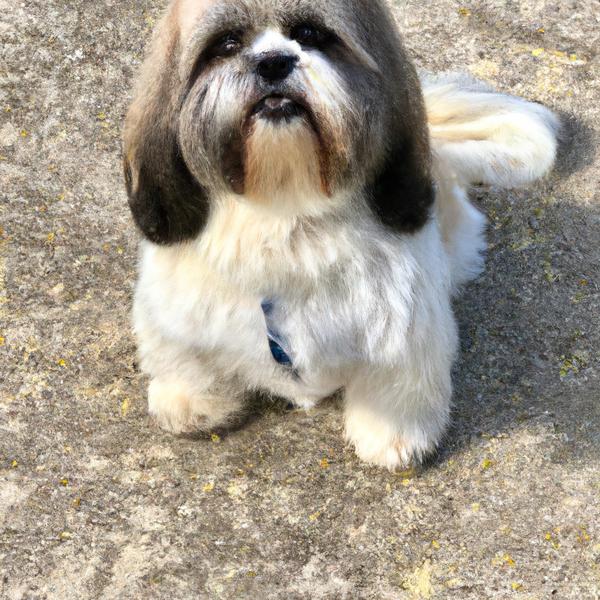
Hava-Apso
Bull Terrier vs Hava-Apso
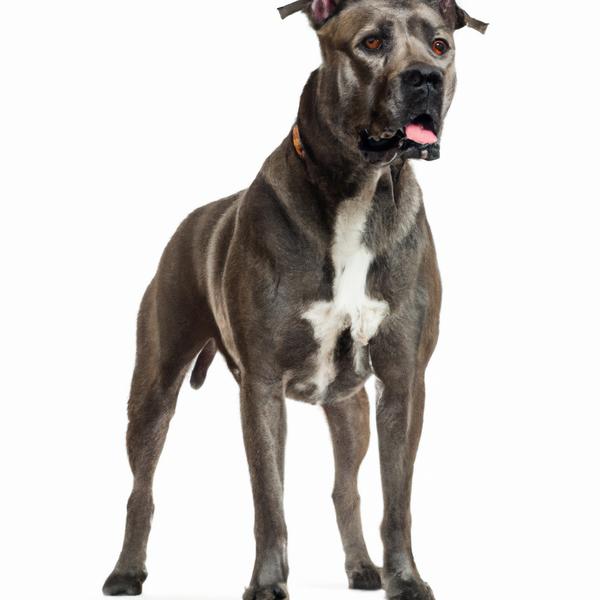
Amstiff
Bull Terrier vs Amstiff
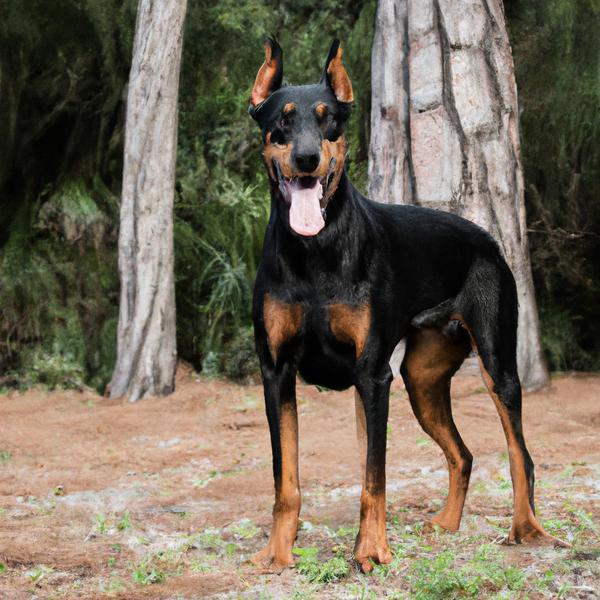
Doberman Shepherd
Bull Terrier vs Doberman Shepherd
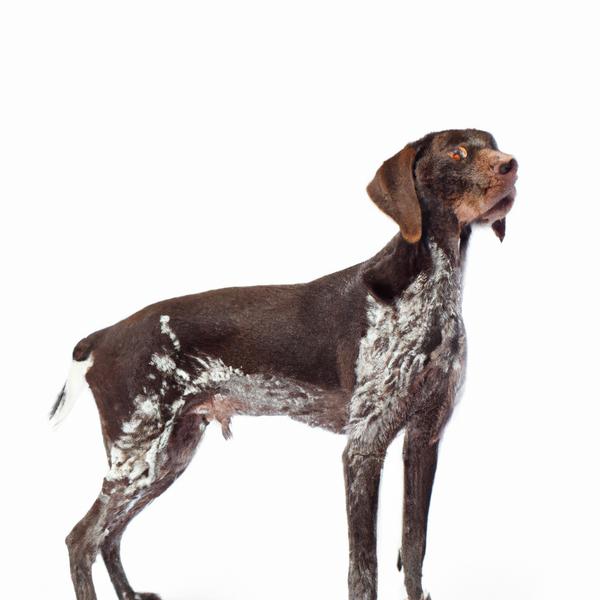
German Shorthaired Sprointer
Bull Terrier vs German Shorthaired Sprointer
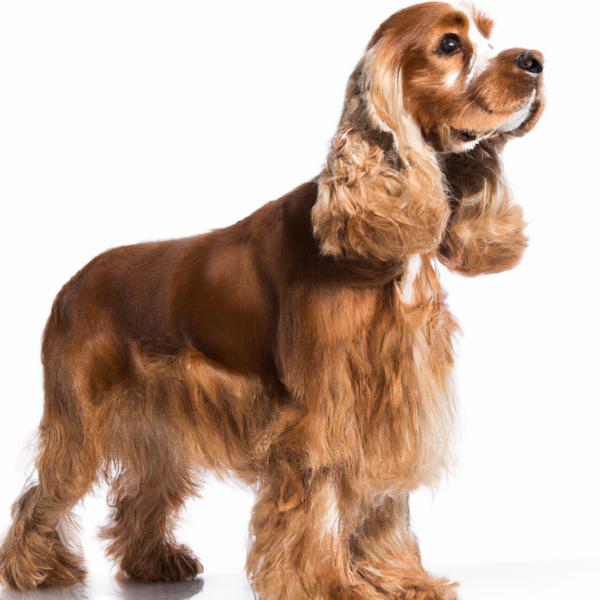
English Toy Cocker Spaniel
Bull Terrier vs English Toy Cocker Spaniel
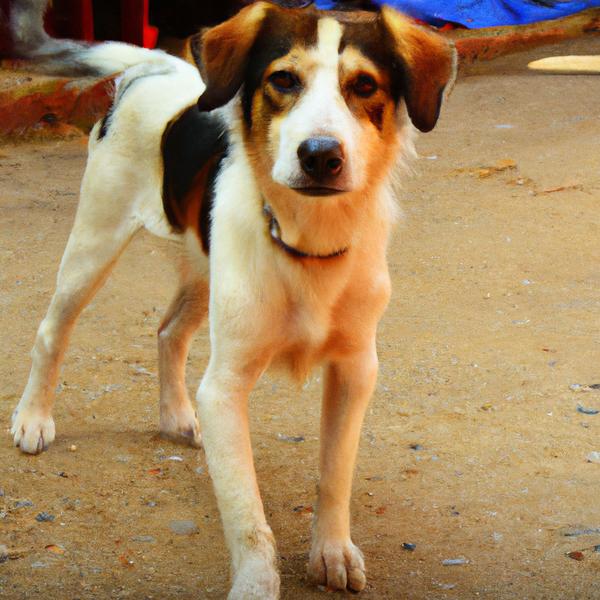
Wheagle
Bull Terrier vs Wheagle
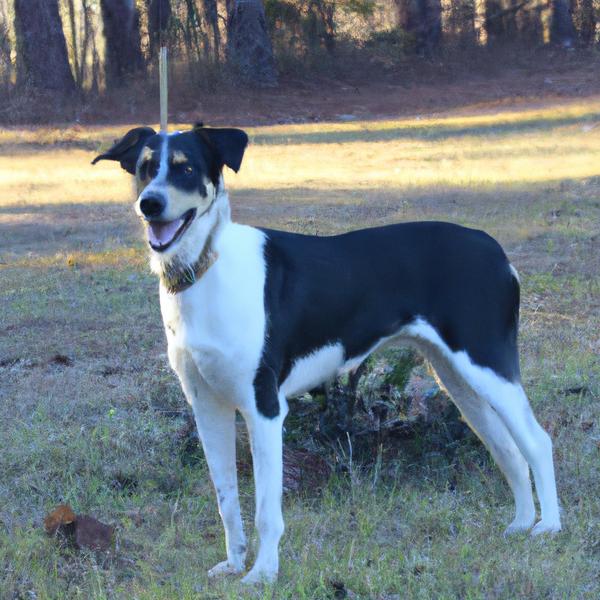
Mauxie
Bull Terrier vs Mauxie
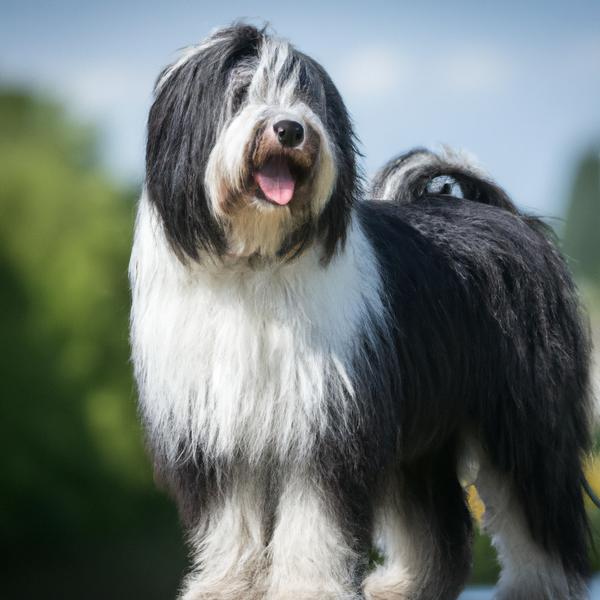
Polish Lowland Sheepdog
Bull Terrier vs Polish Lowland Sheepdog
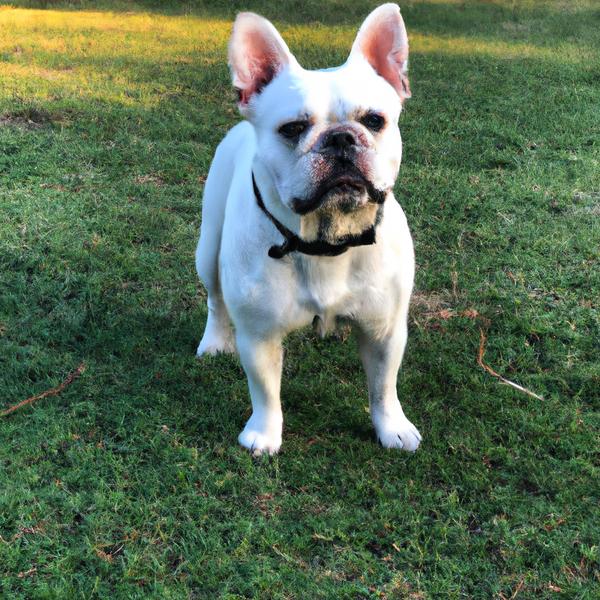
Frenchie Labrador
Bull Terrier vs Frenchie Labrador
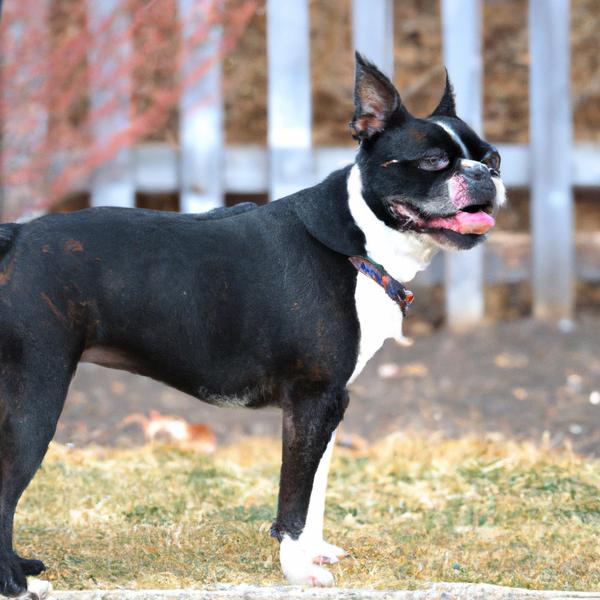
Bostie
Bull Terrier vs Bostie
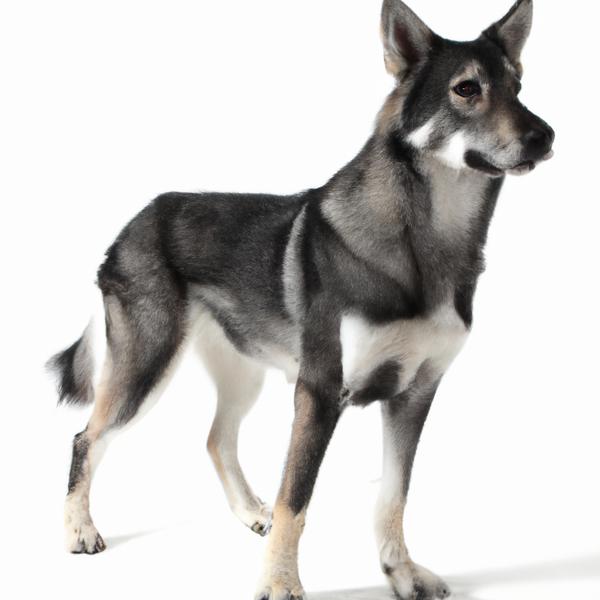
Nortese
Bull Terrier vs Nortese
